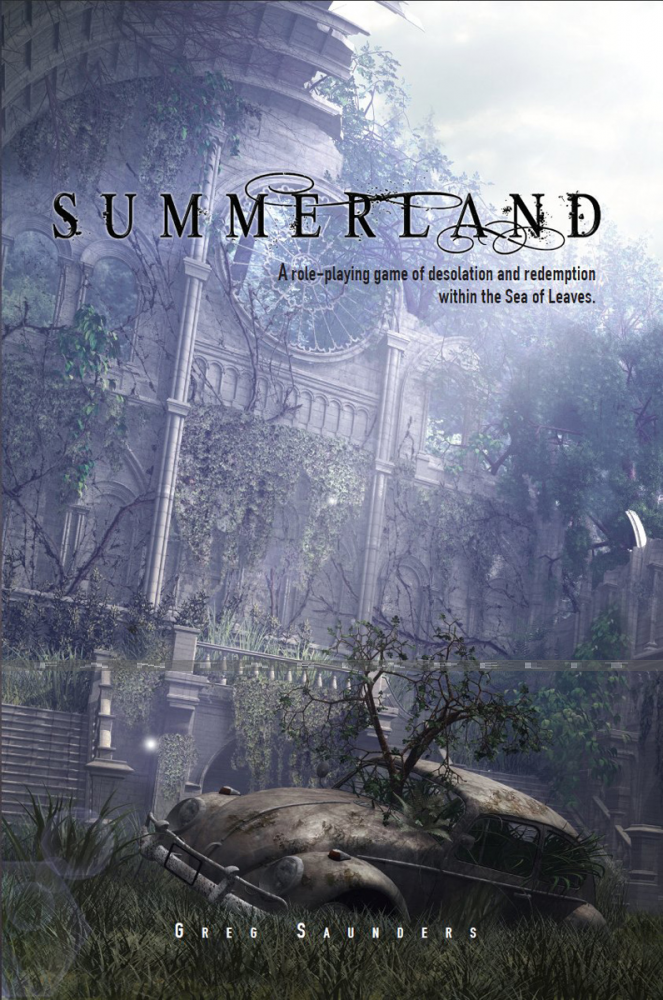I started to feel that I didn’t know roleplaying games well enough so I came up with the plan to read a roleplaying game corebook for every year they have been published. Selection criteria is whatever I find interesting.

The world has been covered in a suddenly appearing massive forest, trees sprouting from where modern human civilization used to flourish. The Call lures vast masses to the depths of the forest to die, leaving survivors to huddle in small communities.
Summerland is a post-apocalyptic roleplaying game with a poetic central image of the Sea of Leaves, the forest encompassing everything, and no interest in exploring the causes of the catastrophe. What matters is how things are now and what kind of play develops from it.
The player characters are drifters moving from one community to the next. They’re able to resist the Call and thus explore the forest because they’re traumatized by something in their past. During the game, they can use their trauma and thus find relief from it, eventually healing completely. At that point, the character can join a community, no longer separated from it by their wounds. This is where the story of a Summerland character ends.
Reading the game was interesting because I’ve published two games that explore somewhat similar territory, Valley of Eternity and Chernobyl Mon Amour. In Valley of Eternity, the player characters are similarly separated from their communities, living as outsiders. In Chernobyl Mon Amour, the landscape is that of a modern city reclaimed by nature, in this case the Chernobyl Zone of Alienation.
When I was reading Summerland I didn’t realize it was from 2008. I thought I was reading a newer game. On reflection, the clues as to its time of publication are there: It makes trauma into a game mechanic in a way that would probably come with more careful language now. It relies on a GM who is expected to come up with interesting events for game sessions in a way that’s become less fashionable in indie design. It offers several different playstyles that depend on the gaming group talking the issue through and agreeing on the style they try to hold onto instead of having such differences hardcoded into mechanics.
One of the themes of Summerland is hope, which comes across in the possibility of reintegration for the individual player characters. The setting doesn’t really offer much hope on a communal level but perhaps an individual can live their remaining years in peace as a member of a group of survivors.